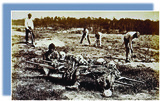
The Origins and Outbreak of the Civil WarEarly Mobilization and War1863: The Changing Nature of the WarThe Union Triumphant
- Subject:
- Social Science
- Material Type:
- Module
- Author:
- OpenStax College
- Date Added:
- 07/18/2021

The Origins and Outbreak of the Civil WarEarly Mobilization and War1863: The Changing Nature of the WarThe Union Triumphant

By the end of this section, you will be able to:Explain the major events that occurred during the Secession CrisisDescribe the creation and founding principles of the Confederate States of America

By the end of this section, you will be able to:Describe the reasons why many Americans doubted that Abraham Lincoln would be reelectedExplain how the Union forces overpowered the Confederacy
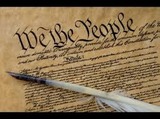
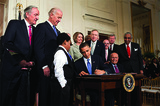
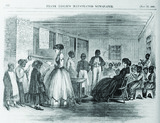
By the end of this section, you will be able to:Describe the efforts made by Congress in 1865 and 1866 to bring to life its vision of ReconstructionExplain how the Fourteenth Amendment transformed the Constitution
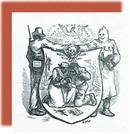
Restoring the UnionCongress and the Remaking of the South, 1865–1866Radical Reconstruction, 1867–1872The Collapse of Reconstruction
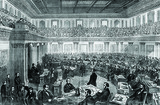
By the end of this section, you will be able to:Explain the purpose of the second phase of Reconstruction and some of the key legislation put forward by CongressDescribe the impeachment of President JohnsonDiscuss the benefits and drawbacks of the Fifteenth Amendment
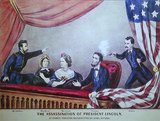
By the end of this section, you will be able to:Describe Lincoln’s plan to restore the Union at the end of the Civil WarDiscuss the tenets of Radical RepublicanismAnalyze the success or failure of the Thirteenth Amendment
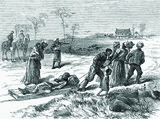
By the end of this section, you will be able to:Explain the reasons for the collapse of ReconstructionDescribe the efforts of white southern “redeemers” to roll back the gains of Reconstruction
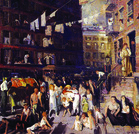
By the end of this section, you will be able to:Explain how American writers, both fiction and nonfiction, helped Americans to better understand the changes they faced in the late nineteenth and early twentieth centuriesIdentify some of the influential women and African American writers of the era

Urbanization and Its ChallengesThe African American “Great Migration” and New European ImmigrationRelief from the Chaos of Urban LifeChange Reflected in Thought and Writing

By the end of this section, you will be able to:Identify how each class of Americans—working class, middle class, and upper class—responded to the challenges associated with urban lifeExplain the process of machine politics and how it brought relief to working-class Americans
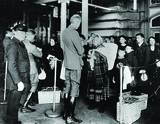
By the end of this section, you will be able to:Identify the factors that prompted African American and European immigration to American cities in the late nineteenth centuryExplain the discrimination and anti-immigration legislation that immigrants faced in the late nineteenth century
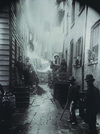
By the end of this section, you will be able to:Explain the growth of American cities in the late nineteenth centuryIdentify the key challenges that Americans faced due to urbanization, as well as some of the possible solutions to those challenges

By the end of this section, you will be able to:Explain the factors that shaped the new morality and the changing role of women in the United States during the 1920sDescribe the “new Negro” and the influence of the Harlem RenaissanceAnalyze the effects of prohibition on American society and cultureDescribe the character and main authors of the Lost Generation
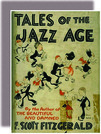
Prosperity and the Production of Popular EntertainmentTransformation and BacklashA New GenerationRepublican Ascendancy: Politics in the 1920s

By the end of this section, you will be able to:Discuss the role of movies in the evolution of American cultureExplain the rise of sports as a dominant social forceAnalyze the ways in which the automobile, especially the Model T, transformed American life
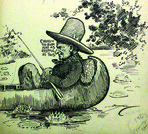
By the end of this section, you will be able to:Discuss Warren G. Harding’s strengths and weaknesses as presidentExplain how Calvin Coolidge was able to defeat the Democratic PartyExplain what Calvin Coolidge meant by “the business of America is business”

By the end of this section, you will be able to:Define nativism and analyze the ways in which it affected the politics and society of the 1920sDescribe the conflict between urban Americans and rural fundamentalistsExplain the issues in question in the Scopes trial